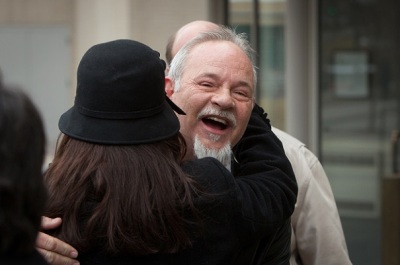Nebraska marriage laws latest casualty of federal judge activism

LINCOLN, Neb. (Christian Examiner) – A federal judge March 2 overturned a Nebraska state constitutional amendment approved by 70 percent of state voters in 2000.
U.S. District Judge Joseph Bataillon, a Clinton appointee, decided Nebraska's law is an "unabashedly gender-specific infringement of the equal rights of its citizens," according to a CNN report.
At this point, only a dozen of the nation's 50 states protect marriage as an institution between a man and a woman. The other 38, now including Nebraska, permit marriage between same-sex couples.
Nebraska state officials immediately appealed the ruling to the 8th U.S. Circuit Court of Appeals, but Bataillon denied a request to hold off his decision until the appeal is heard. As a result, same-sex couples will be able to marry in Nebraska as of Monday, March 9.
"I'm honestly disappointed in this decision," Ryan Alexander, pastor of Calvary Baptist Church in North Platte, Neb., told Christian Examiner. "I feel it was a legitimate vote of the population of the state that was simply overturned by one man's decision."
The ban approved in 2000 prohibited same-sex couples from attaining any form of legal family status. A federal court in 2005 declared the amendment unconstitutional, but the 8th U.S. Circuit Court of Appeals reinstated it in July 2006.
In January, the U.S. Supreme Court accepted cases from Kentucky, Michigan, Ohio and Tennessee after the U.S. Sixth Circuit Court of Appeals upheld voter-approved initiatives upholding traditional marriage -- between one man and one woman -- in those states. Oral arguments will be heard in April and a decision issued by June on two questions: whether the U.S. Constitution requires states to issue marriage licenses to same-sex couples, and whether states must recognize same-sex marriages performed in other states.
Same-sex marriage is legal now in 38 states plus the nation's capital, largely because of judicial activism:
-- 27 have had voter-approved amendments overturned by courts.
-- 12 still only allow marriage between one man and one woman. But among these, seven (Arkansas, Kentucky, Michigan, Misssissippi, Missouri, South Dakota and Texas) have had a judge overturn the ballot measures and appeals are in progress.
-- 8 state legislatures passed laws making same-sex marriages legal (Delaware, Hawaii, Illinois, Minnesota, New Hampshire, New York, Rhode Island and Vermont).
-- Voters in Maine, Maryland and Washington approved measures to legalize gay unions, as did the electorate in the District of Columbia.
Court partisanship has been evident in the multiple federal court rulings that overturned voter approved amendments to define marriage in traditional terms, as well as in the Sixth Circuit decision to uphold traditional marriage in Tennessee, Kentucky, Michigan and Ohio.
The trend of dramatic judicial support for homosexual marriage coincides with changes President Obama has been able to effect in the makeup of the courts.
The New York Times reported Sept. 13, 2014, that for the first time in a decade "judges appointed by Democratic presidents considerably outnumber judges appointed by Republican presidents" and that Democratic appointees who hear full cases "now hold a majority of seats on nine of the 13 United States Courts of Appeals.